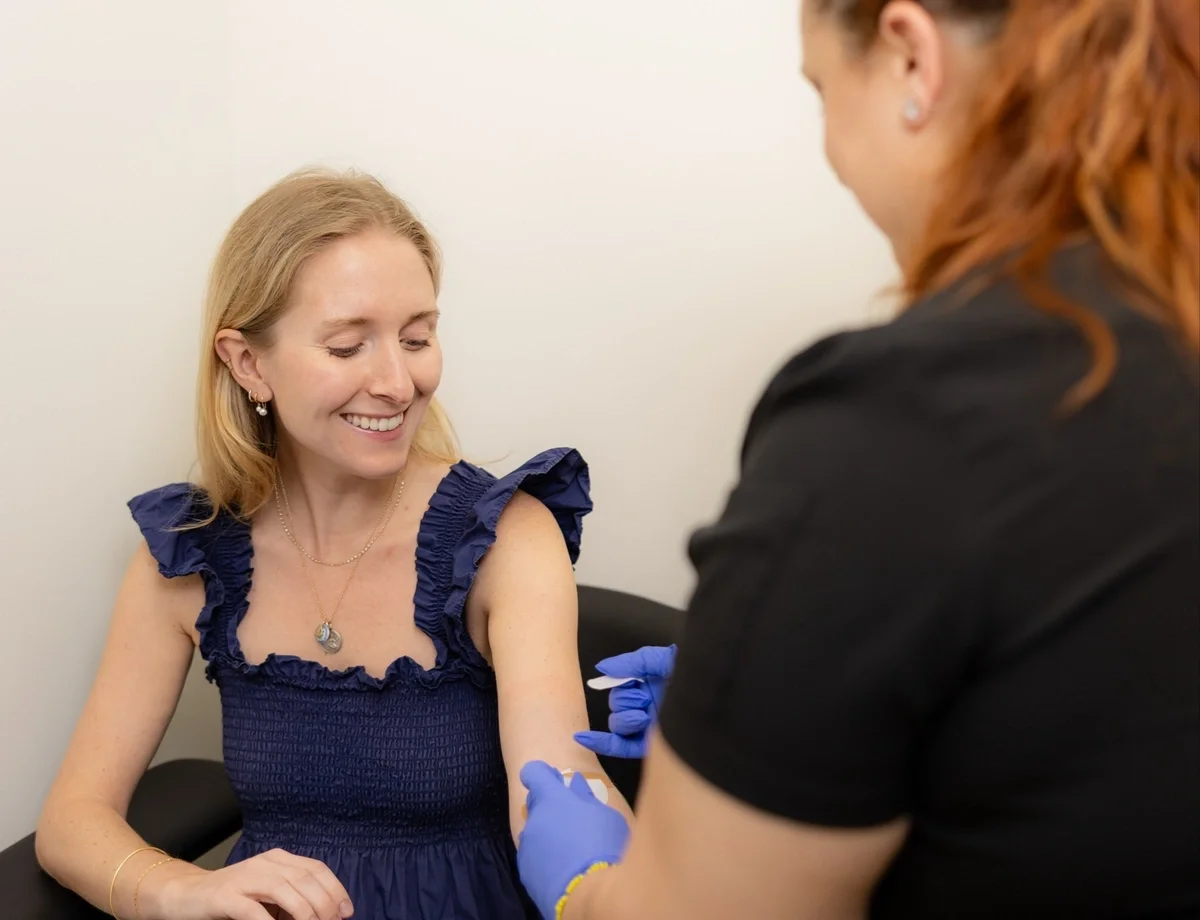
Understanding FSH Levels and Their Role in Fertility Care
FSH, or follicle-stimulating hormone, is a key marker that helps fertility specialists understand how the ovaries are functioning. Measuring FSH gives fertility specialists valuable insight into your reproductive health and plays an important role in shaping personalized treatment plans, including IVF.
What is FSH?
FSH stands for follicle-stimulating hormone, a hormone produced by the pituitary gland. In women, FSH plays a key role in stimulating the ovaries to develop mature eggs during the menstrual cycle. Because of this central role, FSH is an important hormone to measure when evaluating reproductive health.
How Are FSH Levels Measured?
FSH levels are measured with a simple blood test, usually done on day 2 or day 3 of the menstrual cycle. This timing gives us the most accurate picture of ovarian function.
What Do High or Low FSH Levels Indicate?
-
High FSH levels may suggest that the ovaries are working harder to produce eggs, often a sign of diminished ovarian reserve or age-related decline in fertility.
-
Unusually low FSH levels can point to potential hormonal imbalances, such as issues with the pituitary gland or hypothalamus, which may interfere with normal ovulation.
It’s important to remember that FSH is just one piece of the puzzle. Your fertility specialist will interpret your FSH results alongside other hormone levels, like estradiol, and imaging to create a complete picture of your reproductive health.
How Do FSH Results Impact Fertility Treatment?
FSH levels help guide the design of your fertility treatment plan, especially if you are considering in vitro fertilization (IVF):
-
Women with higher FSH levels may require tailored medication protocols to stimulate the ovaries effectively.
-
For women with lower ovarian reserve, FSH results can help set realistic expectations about egg retrieval outcomes and guide discussions about alternative options, such as donor eggs.
Tips for Patients Preparing for FSH Testing at IVFMD
-
Know your cycle: Women should track their periods so that the test can be scheduled on day 2 or 3.
-
Follow pre-test instructions: Your doctor may advise you to avoid certain medications or supplements before testing.
-
Be prepared for follow-up tests: Since FSH is only part of the fertility picture, expect additional testing such as AMH levels, other hormonal evaluations, ultrasound imaging, or semen analysis.
-
Ask questions: Our team at IVFMD is here to explain your results and help you understand what they mean for your personal fertility journey.
At IVFMD, we are committed to helping every patient understand their fertility health, including the important role of FSH levels. If you’re ready to take the next step, schedule a consultation with our team today.
